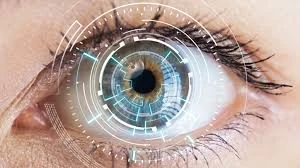Have you recently had SMILE surgery and are worried because your vision is still blurry? Don’t panic! This article will guide you through understanding why this happens and what you can do about it. So let’s get started!
Contents
Understanding SMILE Surgery
 SMILE (Small Incision Lenticule Extraction) is an innovative procedure for correcting vision issues like myopia and astigmatism. Unlike traditional methods like LASIK, SMILE is characterized by its minimally invasive approach, making it a popular choice for many seeking to improve their vision. This procedure has been lauded for its minimally invasive nature and quick recovery times taking less than 15 minutes for both eyes.. But like all surgeries, there can be a few bumps on the road to perfect vision.
SMILE (Small Incision Lenticule Extraction) is an innovative procedure for correcting vision issues like myopia and astigmatism. Unlike traditional methods like LASIK, SMILE is characterized by its minimally invasive approach, making it a popular choice for many seeking to improve their vision. This procedure has been lauded for its minimally invasive nature and quick recovery times taking less than 15 minutes for both eyes.. But like all surgeries, there can be a few bumps on the road to perfect vision.
Why Is My Vision Blurry After Surgery?

Blurry vision is a common occurrence after undergoing SMILE surgery. However, it’s typically a temporary condition and should improve over the following days and weeks. The exact cause can vary, but here are some of the most common reasons:
Healing Process
Right after SMILE surgery, your cornea is starting to heal from the small incision and the removal of the lenticule. This healing process can create some inflammation, which can, in turn, cause blurry vision. Usually, this blurriness improves as your eye heals and the inflammation subsides.
Dry Eyes
Dry eyes are quite common after SMILE surgery and can contribute to blurry vision. The procedure can affect your eyes’ ability to produce tears temporarily, leading to a dry eye condition. As your eye heals and tear production returns to normal, this cause of blurriness often improves.
Swelling or Edema
Swelling or edema of the cornea can occur after SMILE surgery, contributing to blurry vision. This swelling is usually temporary and reduces as the eye heals.
Residual Refractive Error
Sometimes, SMILE surgery may not fully correct your refractive error, leading to continued blurry vision. This could be because the correction was slightly under or over what was required. In such cases, your surgeon might recommend an enhancement procedure.
Corneal Haze
Although it’s rare, some patients may develop corneal haze after SMILE surgery. This condition refers to a slight cloudiness in the cornea, which can cause blurry vision. Corneal haze usually resolves with time or with medical treatment.
It’s important to remember that recovery times can vary from person to person. In most cases, blurry vision after SMILE surgery is temporary and will improve with time.
Recovery Time Of Blurry Vison After SMILE Eye Surgery
The recovery period following SMILE surgery is typically smooth and swift, but each patient’s experience can vary. Here are a few things you might expect post-operation:
Immediately after surgery: It’s normal to experience a degree of blurry vision right after the procedure. Your eye may also feel a bit uncomfortable or as though there’s something in it – this is often described as a ‘foreign body sensation.’ Don’t worry, this is quite normal and typically subsides within a day or so.
First few days: During the first few days after the surgery, you might continue to experience some blurriness in your vision. Remember, your eyes are healing and adjusting to their new state.
Few weeks to months: Over the next weeks to months, your vision will continue to improve. Most patients achieve their best vision two to three months after surgery.
However, it’s important to note that everyone’s healing timeline is unique. If you experience prolonged discomfort or your vision doesn’t improve after a few weeks, it’s important to consult with your surgeon.
How To Avoid Blurred Vision After SMILE Eye Surgery
 As we’ve seen, recovery from SMILE surgery is generally quick and straightforward. However, to ensure optimal healing and to prevent complications, it’s crucial to adhere to certain precautions post-surgery. Here’s a rundown of key measures you should take:
As we’ve seen, recovery from SMILE surgery is generally quick and straightforward. However, to ensure optimal healing and to prevent complications, it’s crucial to adhere to certain precautions post-surgery. Here’s a rundown of key measures you should take:
- Avoid Rubbing Your Eye: In the initial weeks following the surgery, avoid rubbing or putting pressure on your eyes. This helps prevent any potential damage to the healing cornea.
- Use Eye Drops Regularly: Dry eyes are a common post-operative symptom. Your surgeon will likely prescribe lubricating eye drops to help alleviate this. It’s important to use these drops as instructed to keep your eyes hydrated and comfortable.
- Protect Your Eyes: To prevent any accidental trauma to your eyes, it’s advisable to wear protective eyewear, especially when sleeping or participating in high-risk activities, for the first week or so after surgery.
- Limit Screen Time: Extended screen time can cause eye strain and exacerbate dryness. It’s recommended to limit your use of digital devices, like smartphones, computers, and TVs, especially in the first few days following surgery.
- Avoid Swimming and Hot Tubs: For at least one to two weeks post-surgery, avoid swimming or using hot tubs. These environments can increase the risk of infection.
- Avoid Eye Makeup: Cosmetic products can potentially cause irritation or infection in the early post-operative period. It’s advised to avoid eye makeup for at least a week after surgery.
- Follow-Up Appointments: Ensure you attend all follow-up appointments with your surgeon. These are crucial for tracking your healing progress and addressing any concerns promptly.
Taking these precautions and staying in close contact with your healthcare provider will put you on the path to the clearer vision you’ve been looking forward to.
Conclusion
Undergoing SMILE eye surgery is a significant step towards achieving the clearer vision and freedom from glasses or contacts. However, blurry vision immediately after the procedure is a common occurrence and usually a normal part of the healing process. It’s typically temporary and resolves as your eyes adjust and recover. Allow your eyes the time they need to heal. In the end, the prospect of clearer vision and an enhanced quality of life makes the process worthwhile.
If you’re considering vision correction and looking to break free from glasses or contacts, SMILE surgery isn’t the only option available. Lasik surgery, a safe 10-minute procedure, is another excellent alternative. EyeMantra offers the most advanced Lasik options, PRK, Femto Lasik, SMILE surgery, Standard lasik, ICL and Contoura vision. If you have any questions on Lasik surgery in Delhi, Lasik surgery cost and Lasik procedure, call us at 9711116605 or email at [email protected].
FAQs
1. Is it normal to have blurry vision after SMILE surgery?
Yes, it is completely normal to experience some degree of blurry vision immediately after SMILE surgery. This is usually temporary and part of the healing process. As your eyes recover and adjust to the changes, your vision should start to clear. However, if the blurriness persists or worsens, you should contact your healthcare provider.
2. Can blurry vision be cured permanently?
Blurry vision is often caused by refractive errors like nearsightedness, farsightedness, and astigmatism. Procedures like SMILE and LASIK surgery can correct these errors and potentially eliminate the need for glasses or contacts, effectively curing blurry vision in many cases. However, it’s important to have a thorough examination and discussion with your eye care provider to determine the best treatment option for your specific needs.
3. Can SMILE surgery go wrong?
As with any surgical procedure, there are risks associated with SMILE surgery. However, complications are rare. Potential risks include infection, under or overcorrection of vision, and the development of dry eyes or corneal haze. The precision of the laser used in SMILE surgery and the skill of the surgeon significantly minimize these risks. Moreover, adhering to post-operative instructions and attending follow-up appointments will further ensure a successful outcome.


